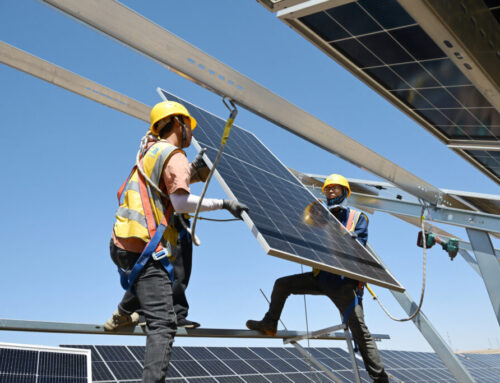NY Cannabis Market Taps $1.3B in Revenue as Regulators Approve 33 New Licenses | stupidDOP
October 7, 2025

Table of Contents
Show
- A Closer Look at the New Licenses Approved
- Sales Momentum Across the Empire State
- Addressing the Licensing Backlog
- The Role of the Cannabis Control Board
- How Legal Weed Is Reshaping New York’s Economy
- The Importance of Social Equity and Small Business
- The Path Forward: Challenges and Opportunities
- Looking Ahead
New York’s cannabis industry is thriving — and the numbers prove it. According to the state’s Cannabis Control Board (CCB), the legal cannabis market has generated nearly $1.3 billion in sales so far this year. The figure not only highlights the growing strength of New York’s regulated weed market but also signals a major shift in consumer behavior, as more residents turn away from unlicensed operators and embrace legally sourced products.
The data, presented during the latest CCB meeting on Monday, underscores how quickly New York’s cannabis market is maturing. Despite a slow rollout in 2023 and a challenging transition from the legacy market, licensed operators are finally gaining traction — and the results are unprecedented.
A Closer Look at the New Licenses Approved
The Cannabis Control Board continues to advance New York’s cannabis ecosystem by expanding opportunities for cultivation, processing, distribution, and retail. During its recent session, the board approved 33 new licenses across various categories, further diversifying the state’s supply chain:
-
11 Cultivators – Expanding the agricultural foundation of New York’s cannabis industry, these cultivators will help increase strain diversity, improve product availability, and stabilize pricing for consumers.
-
2 Distributors – Strengthening the logistics network for legal cannabis, ensuring efficient movement of products from farms to dispensary shelves.
-
6 Processors – Adding vital infrastructure for the creation of concentrates, vapes, edibles, and topicals, helping licensed brands keep pace with consumer demand.
-
8 Retailers – Bringing more legal access points across the state, from upstate regions to urban centers like New York City.
-
3 Microbusinesses – Encouraging small-scale, vertically integrated operations that blend cultivation, production, and retail into a single license type.
-
2 CAURD Dispensaries – Expanding the Conditional Adult-Use Retail Dispensary (CAURD) program that prioritizes social equity applicants affected by past marijuana convictions.
Each new license approval represents another step toward building a stable, inclusive, and competitive market — one that supports local entrepreneurs, minority-owned operators, and small businesses throughout the Empire State.
Sales Momentum Across the Empire State
As the legal framework continues to evolve, New York’s cannabis sector is quickly becoming one of the most profitable in the nation. The $1.3 billion in sales represents both adult-use and medical markets combined, a clear sign that legal access is resonating with consumers statewide.
This surge in revenue reflects more than just recreational enthusiasm — it’s evidence of a growing trust in the regulated system. Consumers are increasingly choosing licensed dispensaries that prioritize lab-tested, compliant, and safe cannabis products over illicit market alternatives. The growing number of licensed dispensaries and delivery services has also made access more convenient than ever before.
From New York City’s boroughs to upstate towns, dispensaries are seeing higher traffic and stronger repeat customer behavior. Legal weed is no longer a novelty in New York; it’s a thriving, regulated industry that’s beginning to meet its full potential.
Addressing the Licensing Backlog
While progress is undeniable, the Cannabis Control Board faces a significant challenge: the sheer volume of pending applications. As of this week, regulators are still reviewing 275 applications from November 2023 and 2,704 retail applications submitted in December.
This backlog highlights both the massive interest in New York’s cannabis industry and the administrative strain on the Office of Cannabis Management (OCM). The agency has pledged to streamline its review process and prioritize fairness and transparency.
For many entrepreneurs, the wait has been long and costly. Applicants who filed nearly a year ago remain uncertain about their status, with rent, buildout costs, and compliance expenses mounting. Yet, despite these hurdles, optimism remains strong — particularly with the state’s clear intention to expand licensing capacity and accelerate approvals in the coming months.
The Role of the Cannabis Control Board
The Cannabis Control Board, under the leadership of Chairwoman Tremaine Wright, continues to shape the regulatory landscape with measured progress. The board’s recent decisions reinforce its commitment to equity, sustainability, and economic opportunity for local operators.
By balancing growth with governance, the CCB is aiming to ensure that the cannabis industry grows responsibly — protecting consumers, supporting small business development, and promoting restorative justice for communities disproportionately affected by prohibition.
The CCB’s approach to incremental licensing ensures that each new operator entering the market has the potential to succeed rather than be overwhelmed by oversaturation. It’s a strategy designed for long-term sustainability rather than short-term expansion.
How Legal Weed Is Reshaping New York’s Economy
New York’s cannabis industry is more than just a success story in sales; it’s a catalyst for economic revitalization. With billions in projected revenue over the next few years, the state’s legal weed market is generating new tax income, job creation, and real estate growth.
Cultivators are repurposing farmland for sustainable agriculture. Processors are opening state-of-the-art facilities that employ dozens of workers. Retailers are transforming downtown storefronts into vibrant dispensary destinations that attract both residents and tourists.
Local economies are already benefiting. Towns that once hesitated to approve dispensaries are now seeing measurable increases in tax receipts and commercial activity. With every new store opening, New York is strengthening its position as a hub for innovation, inclusion, and responsible cannabis commerce.
The Importance of Social Equity and Small Business
One of the most defining features of New York’s cannabis rollout is its emphasis on social equity. Through the CAURD (Conditional Adult-Use Retail Dispensary) program, the state has prioritized applicants who were disproportionately impacted by cannabis prohibition.
While implementation has faced delays, the underlying mission remains vital — ensuring that the economic benefits of legalization extend to individuals and communities previously harmed by outdated drug laws.
Additionally, New York’s licensing structure is designed to favor small businesses and micro-operators over large corporate entities. By capping vertical integration and promoting localized entrepreneurship, the state aims to preserve a diverse and competitive marketplace.
The Path Forward: Challenges and Opportunities
Despite record-breaking sales, the road ahead is complex. Many licensees face operational challenges such as limited access to banking, high tax rates, and competition from illicit storefronts. Enforcement remains a key concern, as unlicensed shops continue to operate openly in parts of New York City.
However, the combination of robust sales data, expanding retail infrastructure, and a growing number of compliant operators suggests that the legal market is gaining the upper hand. State regulators are intensifying enforcement against illegal sellers while supporting licensed businesses through education, community engagement, and marketing programs.
The next phase of growth will likely focus on refining the supply chain, supporting brand development, and improving access to capital for small and minority-owned businesses.
Looking Ahead
If the momentum continues, New York’s cannabis market could easily surpass $2 billion in annual sales within the next 12 to 18 months. As more licenses are approved and new dispensaries open, the market will mature further, providing more choice and quality for consumers statewide.
For consumers, that means a wider range of premium products — from handcrafted flower and concentrates to edibles, vapes, and topicals — all tested, traceable, and available at licensed locations.
For entrepreneurs, the message is clear: New York’s cannabis opportunity remains vast, but success requires patience, compliance, and an unwavering commitment to quality.
To learn more about licensing, regulations, and upcoming board meetings, visit the New York State Office of Cannabis Management for official updates and resources.
Catch us at Hall of Flowers tomorrow and on the 9th.
Search
RECENT PRESS RELEASES
Related Post









